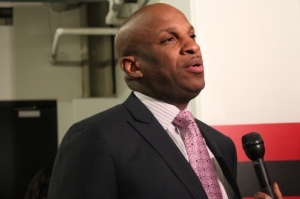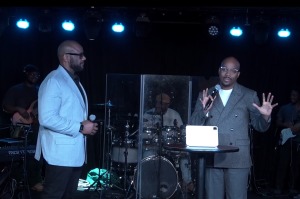Oklahoma U. medical facilities to halt ‘certain gender medicine services’ amid legislative pressure

Medical facilities tied to the University of Oklahoma have agreed to discontinue what they describe as "certain gender medicine services" in response to pressure from state lawmakers.
OU Health released a statement Tuesday stating it would discontinue the services after lawmakers threatened to block as much as $108.5 million in federal funding for the Oklahoma-based University Hospitals Authority and Hospitals Trust, reported Tulsa World.
Legislators made discontinuing "gender reassignment medical treatment" for children under 18 a stipulation for the medical facilities to receive funds from the federal American Rescue Plan Act. The act allocated about $39.4 million for a children's behavioral health hospital in Oklahoma City.
"The funding will modernize our technical infrastructure, bring National Cancer Institute-level cancer care to northeast Oklahoma and allow us to deliver the most advanced inpatient and outpatient resources in the country for young people who need mental and behavioral health care," stated OU Health, as quoted by Tulsa World.
"The Legislature restricted the use of the funds from benefiting facilities performing certain gender medicine services. The new mental and behavioral health facility was never intended to provide such care."
The statement added that the "OU Health Senior Leadership team is proactively planning the ceasing of certain gender medicine services across our facilities and that plan is already under development."
It is not immediately clear what "gender medicine services" OU Health has offered and what it will discontinue.
The Oklahoma chapter of the American Civil Liberties Union denounced the effort to condition funding on discontinuing body-mutilating gender reassignment procedures and other gender identity clinic services, such as cross-sex hormones and puberty blockers.
ACLU Oklahoma Policy Director Cindy Nguyen said in a statement Tuesday that the effort is an attack on the "bodily autonomy" of LGBT individuals.
"Transgender youth are a part of Oklahoma, and they deserve the same privacy, access to treatment, and evidence-based health care from trained medical professionals as any other Oklahoman," stated Nguyen.
"This legislation displays a fundamental ignorance about the medical treatment for transgender youth and undermines the prevailing recommendations of every major medical association."
The Oklahoma legislature is considering a bill that would ban anyone under the age of 21 from getting gender reassignment surgeries in Oklahoma.
State Sen. Warren Hamilton, who filed the bill during the 2021 legislative session but never received a hearing, expressed concern about the long-term effects of experimental treatments like puberty blockers and reassignment surgeries.
"My concern is that these procedures and transitions are life-altering, and this decision shouldn't be made by those unable to see the long-term effects of such treatments," Hamilton stated, as quoted by the Oklahoma City-based Fox 25.
"The problem is, once they become adults, those surgeries and the effects of the hormones cannot simply be undone. My legislation will help preserve the physical and mental health of a young person who may not fully understand the life-long ramifications of these treatments and surgeries."
There has been much national debate in recent years surrounding the ethics of prescribing puberty-blocking drugs and cross-sex hormones to children suffering from gender dysphoria, even though organizations like the American Academy of Pediatrics approve of the practice.
The use of puberty-blocking drugs has not been approved by the Food and Drug Administration to be used to delay puberty in children suffering from gender dysphoria. Some doctors warn that using drugs for that purpose should be treated as experimental because the long-term effects have not been thoroughly studied.
Critics accuse the American Academy of Pediatrics of silencing debate on the matter and ignoring evidence from studies that have led some European countries to place more restrictions on medical transitions for minors.
AAP President Moira Szilagyi contends that AAP "advises pediatricians to offer developmentally appropriate care that is oriented toward understanding and appreciating the youth's gender experience."
In its policy statement, "Ensuring Comprehensive Care and Support for Transgender and Gender-Diverse Children and Adolescents," AAP states that the decision to "initiate gender-affirmative treatment is personal and involves careful consideration of risks, benefits, and other factors unique to each patient and family."
Earlier this month, the World Professional Association for Transgender Health removed a section from its guidelines on the minimum age requirements for children to obtain puberty blockers, cross-sex hormones or undergo body-altering surgeries.
Amy Tishelman, the author of the "Child" chapter in the World Professional Association for Transgender Health's Standards of Care 8th Edition guidelines, told WPATH's annual conference that the age guidelines for "gender-affirming" hormones and surgeries were removed to protect doctors from liability.
"What we didn't want to do was create a chapter that would make it more likely that practitioners would be sued because they weren't following exactly what we said," she said.
Several detransitionsers — individuals who transitioned to the opposite biological sex and then detransitioned back after regret — have opened up about how they felt misled or unable to comprehend the potential consequences of surgical and hormonal transitions as teens and young adults.
The CBS program "60 Minutes" aired the stories of detransitioners in a segment earlier this year, which drew considerable pushback from transgender advocacy groups.
"I didn't get enough pushback on transitioning. I went for two appointments and after the second one, I had my letter to go get on cross-sex hormones," one young man named Garrett from Baton Rouge, Louisiana, said on the show.

























